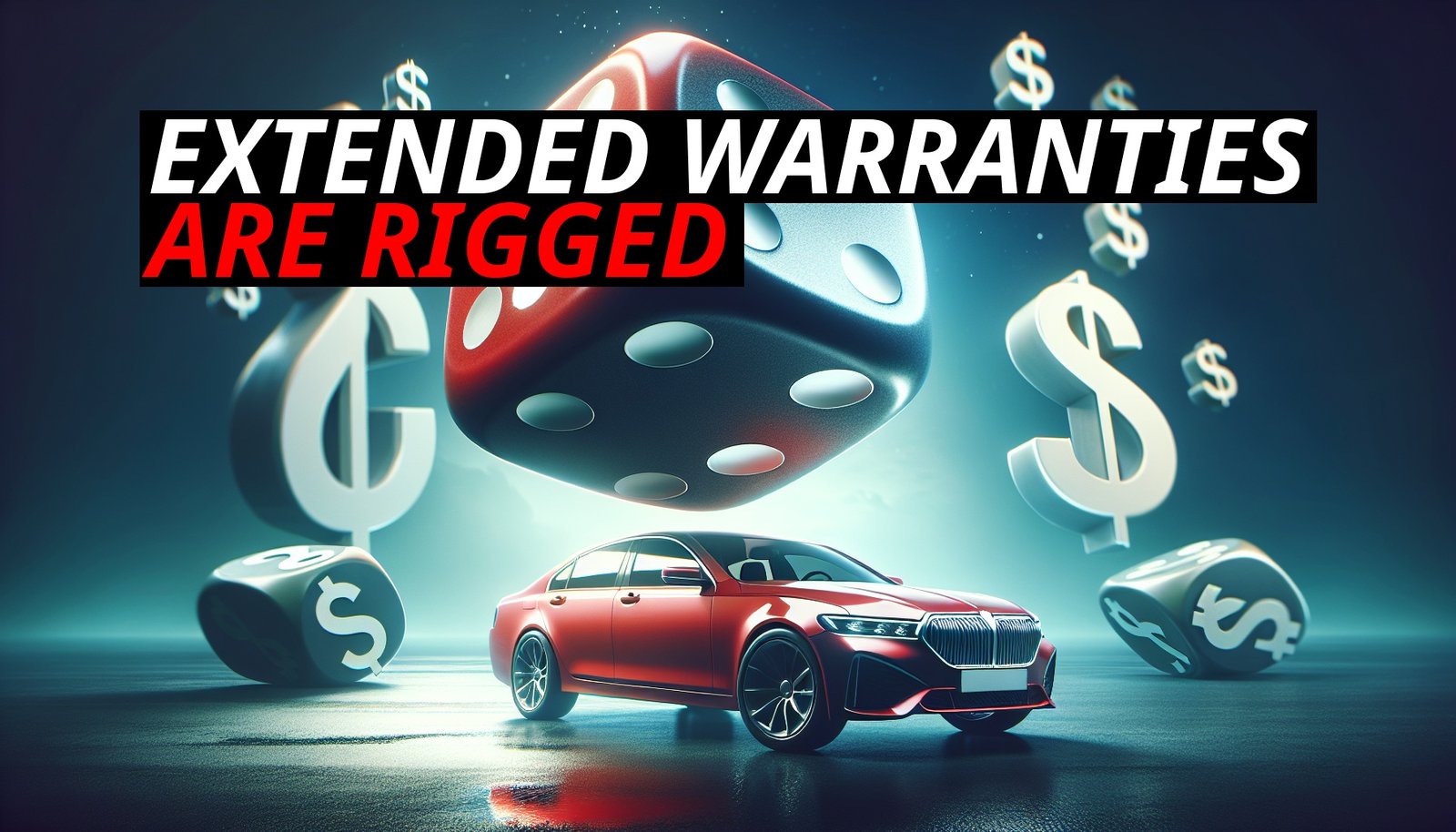Imagine walking into a glitzy casino. The lights are bright, the sounds of slot machines fill the air, and everything is designed to lure you into placing a bet. But here’s the thing: no matter how much you think you might win, the odds are always stacked in favor of the house. Extended warranties are a lot like this—they promise protection and peace of mind, but in the end, the odds are designed to benefit the seller, not you. Let’s dive into why purchasing an extended warranty is often just a gamble where the house always wins.
The Illusion Of Security: Why Extended Warranties Feel Like A Safe Bet
When you’re offered an extended warranty, it’s easy to think of it as a smart investment—a way to safeguard yourself against potential future expenses. Just like a casino offers the allure of a big win, extended warranties offer the promise of protection against costly repairs. The idea is that if something goes wrong, you’re covered, and that coverage feels like a sure thing.
But much like in gambling, where the casino is strategically designed to make you feel like you’re in control, the odds with extended warranties are similarly skewed. Retailers and warranty providers know the statistics—they know that the majority of products won’t fail within the warranty period, and if they do, the repair costs often don’t justify the price of the warranty itself (Credence”>Source“>Source Research).
Stacking The Deck: How Warranty Providers Ensure They Come Out On Top
In a casino, the house has a mathematical edge—whether it’s the slight advantage in blackjack or the random odds in roulette, the casino’s profit is built into the game. Extended warranties operate on a similar principle. Here’s how:
– Low Payout Ratios: Extended warranties typically have low payout ratios, meaning that for every dollar you spend, the provider pays out only a fraction in claims—often as low as 20% to 40%
(Credence”>Source“>Source Research)
(BlueWeave”>Source“>Source Consulting). This is the “house edge” in the warranty world. You’re betting on the chance that your product will fail, but statistically, the warranty provider knows that the odds are in their favor.
– Fine Print and Exclusions: Just like the casino’s rules, the terms of extended warranties are often complex and filled with exclusions. Common issues like normal wear and tear, accidental damage, or even certain parts of the product might not be covered. This fine print ensures that the warranty provider minimizes their risk, much like a casino sets limits to prevent big losses
(BlueWeave”>Source“>Source Consulting).
– High Pressure Sales Tactics: Casinos use bright lights, free drinks, and enticing games to keep you playing. Similarly, retailers use high-pressure sales tactics to convince you that an extended warranty is a must-have. Salespeople might emphasize the potential risks, making you feel like you’re making a wise choice, when in reality, you’re playing right into the provider’s hands.
The Gambler’S Fallacy: Why We Keep Buying Warranties
In gambling, there’s something called the “gambler’s fallacy”—the mistaken belief that if something happens frequently in the past, it will happen less frequently in the future, or vice versa. For example, if a roulette wheel lands on red five times in a row, you might think black is “due” next, even though each spin is independent.
When it comes to extended warranties, we often fall into a similar trap. Maybe you’ve had a product fail in the past and had to pay out of pocket for repairs, so now you think that buying a warranty will protect you next time. But just like in gambling, past events don’t influence future outcomes in the way we think they do. The product you’re buying now might be more reliable, or the cost of potential repairs might be lower than the cost of the warranty (BlueWeave”>Source“>Source Consulting).
When The House Wins: The Real Cost Of Extended Warranties
Ultimately, the real winners in the extended warranty game are the retailers and warranty providers. Just like a casino rakes in profits from hopeful gamblers, warranty providers collect money from consumers who overestimate the risks and underestimate the actual value of the coverage. The result? Most consumers end up paying more in warranty fees than they would have spent on repairs.
For example, if you buy a $200 extended warranty on a $1,000 product, and the product only needs a $50 repair after the manufacturer’s warranty expires, you’ve lost $150 in the deal. Multiply this by the number of warranties you might purchase over a lifetime, and the house’s edge becomes clear—it’s a game you’re unlikely to win.
The Bottom Line: Is It Worth The Gamble?
Just like in gambling, when it comes to extended warranties, the best strategy might be to walk away from the table. Instead of betting on a warranty that might never pay off, consider self-insuring by saving the money you would have spent on the warranty. This way, if something does go wrong, you’re covered—and if not, the money stays in your pocket.
Remember, in the world of extended warranties, the house always wins. By understanding how the odds are stacked against you, you can make a smarter choice and keep your money where it belongs—safely in your wallet.













